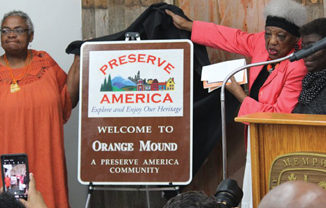
Corinthian Colleges fined $30 million
By Charlene Crowell, NNPA Columnist
Financially-troubled Corinthian Colleges, once one of the nation’s largest for-profit colleges, has a new financial hurdle: a $30 million fine.
An April 14 order by the U.S. Department of Education followed its finding 947 documented incidents of misrepresentations on job placement rates made to both current and former students. Enrollment at Corinthian’s California Heald College is banned and will also lose participation in the Title IV federal student aid programs at campuses in Salinas and Stockton. Current students must either be helped to complete their education or continue it elsewhere.
At the heart of the department’s actions, related and continuing litigation and other activism is a basic public policy question: Should students repay billions of dollars in federal student loans for an education that failed to provide what it promised?
Education Secretary Arne Duncan doesn’t think so.
“This should be a wake-up call for consumers across the country about the abuses that can exist within the for-profit college sector,” he said.
“We will continue to hold the career college industry accountable and demand reform for the good of students and tax-payers. This is unacceptable, and we are holding them accountable.”
Other Heald College job placement practices that concerned the Department of Education included:
- Failing to disclose that it counted graduates whose employment either began before enrollment at Heald or preceded their graduation as job ‘placement;’
- Counting job placements that were outside of the study’s field of study as an in-field placement; and
- Paying temporary agencies to hire its graduates to work at temporary jobs on its own campuses.
The department’s actions came on the heels of mounting concerns from former students and elected officials sustained over several months.
On April 9, in a joint appeal to Se-cretary Duncan, nine state attorneys general called for the department to “relieve borrowers of the obligation to repay federal student loans that were incurred as a result of violations of state law by Corinthian Colleges, Inc.” State attorneys general signing the letter represented California, Illinois, Kentucky, Massachusetts, New Mexico, New York, Oregon and Washington state.
“Through their predatory practices, these unscrupulous for-profit schools have co-opted a public loan program intended to increase access to higher education and left hundreds of thousands of students in financial ruin. Students and families should not be left to bear the costs,” wrote the state officials.
Days earlier, before the attorneys general’s correspondence, a delegation of indebted former students, known as the Corinthian 100, met with the Department of Education to explain why they were withholding payments of their student loans and further asked for the department’s support.
Organized by the Debt Collective, an advocacy group, the students wanted to know why the education officials would allow Corinthian College access to federal student aid while the school was under investigation for fraudulent practices and activities.
In February, the Consumer Financial Protection Bureau (CFPB) secured private loan forgiveness of $480 million for current and former Corinthian students enrolled at one of 52 campuses in 17 states. These terms were an important condition to CFPB agreeing to allow the sale of these campuses to Zenith Education, a subsidiary of Educational Credit Management Corporation (ECMC), and long-time federal loan guarantor.
According to CFPB, Corinthian deliberately raised prices on tuition in order to create a “funding gap” beyond federal grants and loans that students were pressed to close with private loans. Corinthian needed the additional private revenue because of a federal law limiting for-profit schools from receiving no more than 90 percent of their income from federal sources.
And in December 2014, 13 U.S. Senators signed a letter to Secretary Duncan that expressed shared concerns about Corinthian students’ federal student loan debts.
“If colleges fail to hold up their end of the bargain – if they break the law in ways that bear on their students’ educational experience or finances – students should not literally be stuck by paying the price,” wrote Senators from California, Connecticut, Hawaii, Illinois, Massachusetts, Minnesota, Oregon, Rhode Island, and Wisconsin.
For several years Corinthian Colleges were among the nation’s largest for-profit schools, operating under several brands — WyoTech, Heald College and Everest College. After maximizing its reliance on federal loans and Pell Grants, Corinthian’s private student loans, with higher interest rates than federal ones were used to fill funding gaps.
Corinthian’s private “Genesis” loans, unlike other student loans, required repayment to begin while students were enrolled in classes.
Last fall the Center for Responsible Lending (CRL) released research that found how high-cost, for-profit colleges make millions each year by targeting students of color. Although for-profit colleges actually enroll only 13 percent of all college students, they account for nearly half of all student loan defaults.
“For profit colleges have positioned themselves as a means for traditionally underserved students of color to achieve educational success and thus to increase their ability to earn higher incomes, and build wealth,” states the report. “If these schools do not engender better outcomes for their students and instead merely saddle students with debt, then the access these schools provide could prove to widen existing income and wealth gaps, rather than to narrow them.”




Be the first to comment